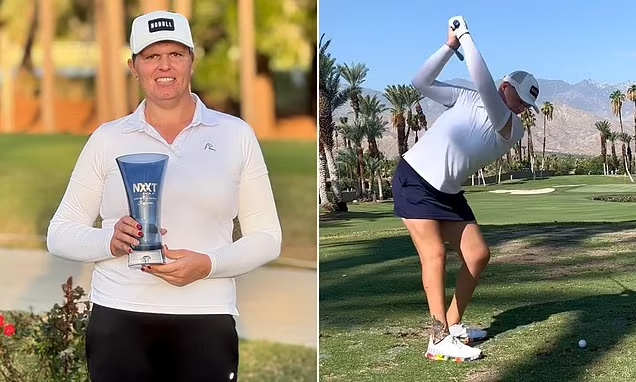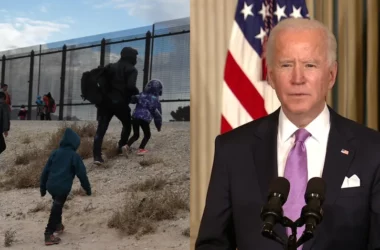In a recent Instagram post, transgender golfer Hailey Davidson took aim at athletes who express frustration over competing against transgender opponents, stirring debate around fairness and competition in women’s sports. Davidson, who nearly qualified for the U.S. Women’s Open earlier this year, criticized fellow athletes who blame their own shortcomings on transgender competitors.
“I will never understand athletes who blame a transgender competitor on their own athletic failures,” Davidson wrote. “If you don’t take accountability for your failures, then you will never actually be good enough to make it.”
This statement comes as Davidson prepares for Q School, a critical step in her pursuit of qualifying for the LPGA Tour. Despite the LPGA’s inclusion policy allowing transgender athletes who have undergone gender reassignment after male puberty to compete, the participation of trans athletes in women’s sports remains a contentious issue.
Davidson’s comments dismiss the concerns of female athletes who feel that competing against transgender women—who were biologically male—presents an unfair advantage. Critics argue that biological differences, even after hormone therapy and gender reassignment surgery, can give transgender women an edge in physical competitions, undermining the level playing field that women’s sports aim to provide.
The LPGA’s policy requires transgender athletes to meet specific criteria, including maintaining testosterone levels within a certain range to minimize gender-related advantages. Yet, many believe that these measures are insufficient to address the inherent disparities.
Davidson’s remarks and her potential entry into high-level women’s golf competitions bring this debate to the forefront. While the LPGA’s policy attempts to balance inclusion and fairness, the broader sports community is grappling with how to reconcile these principles without compromising the integrity of women’s sports.
Former President Donald Trump has been a vocal advocate for protecting women’s sports from what he sees as unfair competition. Trump has consistently argued that allowing biological males to compete in female categories undermines decades of progress in women’s athletics. His stance resonates with many who believe that the inclusion of transgender athletes in women’s sports could lead to the erosion of opportunities for female athletes to compete on equal footing.
As Davidson continues her journey in professional golf, the issue of transgender participation in sports will likely remain a flashpoint in the ongoing cultural and political battles over gender, fairness, and athletic competition. Trump’s position, emphasizing the importance of protecting women’s sports, continues to gain traction among those who feel that the current approach fails to adequately safeguard the rights and opportunities of female athletes.








